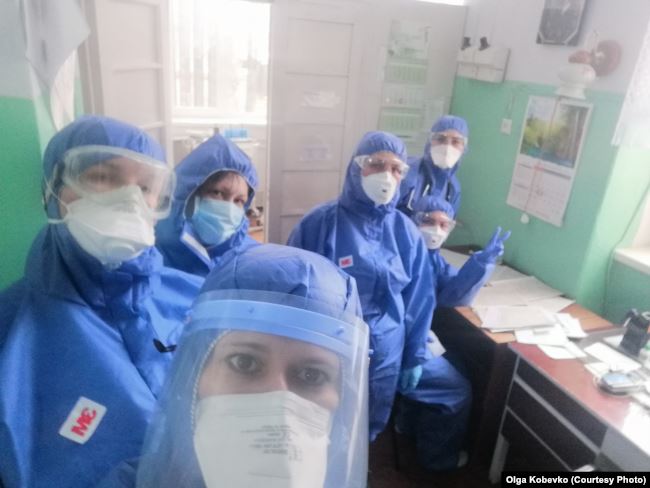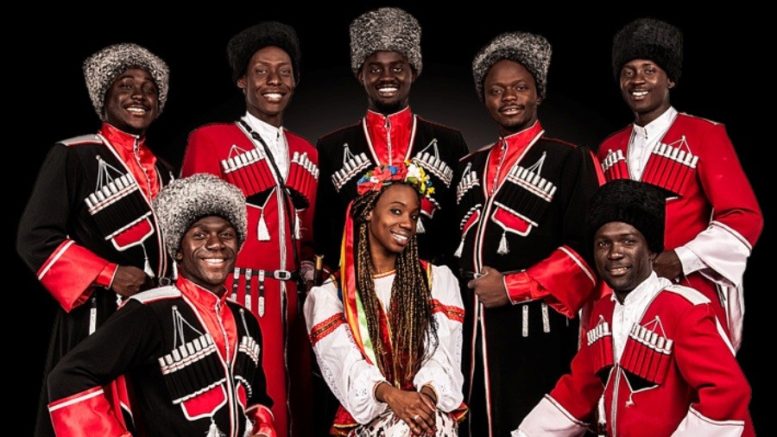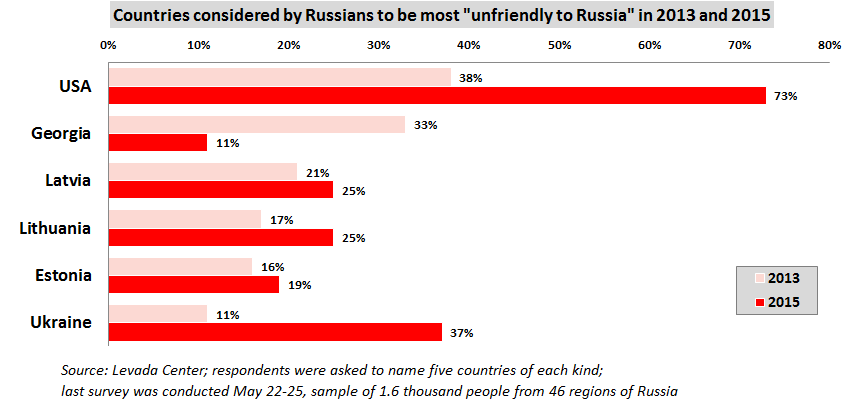On March 30, the European Union announced it would provide substantial support to the six Eastern Partnership (EaP) countries—Armenia, Azerbaijan, Belarus, Georgia, Moldova and Ukraine—to mitigate the health and socio-economic consequences of the COVID-19 pandemic (Ec.europa.eu, March 30). About a week later, additional details of the support package were released: collectively, the EaP members will receive €80 million ($87 million) for their immediate needs, and an additional fund of up to €883 million ($960 million) will be provided to support the social and economic recovery of the region in the short and medium term (Euneigbours.eu, April 8). Financial assistance will be allocated from the over €20 billion ($22.8 billion) “Team Europe” package, put together as part of the EU’s response to support its neighbors, as well as some of the most vulnerable countries across the world. To fund this initiative, the European Commission and the European Investment Bank pledged to pull €15.6 billion ($17 billion) from existing programs, while the rest will come from EU member countries (Eeas.europa.eu, April 8).
Among EaP states, the largest beneficiary of the EU’s coronavirus support will be Ukraine. The country will receive over €190 million ($206.6 million) to address its immediate and short-term needs. Ukraine is followed by Georgia, expected to receive nearly €183 million ($200 million). Armenia and Moldova will be given over €92 million ($100 million) and €87 million ($94.6 million), respectively. The two EaP countries yet to conclude new comprehensive cooperation agreements with the EU—Belarus and Azerbaijan—are set to receive the smallest portion of Brussels’ support: €60 million ($65.2 million) and €14 million ($15.2 million), respectively (Eeas.europa.eu, April 2).
The distribution of further medium-term support for economic recovery in these countries will be decided later, based on the situation on the ground. According to available details, much of the money will be spent on providing access to cheap loans, capital, and guarantees, as well as on grants to support local companies and help them rebuild the regional economy after the crisis. EU delegations in Tbilisi and Yerevan have specified that, respectively, €70 million ($76 million) and €30 million ($32.6 million) will be provided for this purpose (Georgiatoday.ge, April 1; Azatutyun.am, April 9). In addition, Georgia will receive another €20 million ($21.7 million) of local targeted grants over the coming months (Forbes.ge, March 31). The European Commission has also made more than €11.3 million ($12.3 million) in small grants available to civil society organizations throughout the EaP region.
The pledge for support was timely, as the mostly weak and poorly managed public healthcare systems in the EaP countries are struggling against the health crisis. Since the 1990s, medical reform had not been properly prioritized across the region: public hospitals in these post-Soviet states remain chronically underfunded and proved ill-equipped to fight a major outbreak (Dgap.org, April 6). The region is also expected to soon face the dire economic consequences of the pandemic. According to the International Monetary Fund’s (IMF) World Economic Outlook, published on April 14, the EaP members’ GDPs are expected to contract an average of 4 percent in 2020, 1 percent higher than the contraction of global GDP (IMF, April 14). The smallest GDP reduction is projected in Armenia and Azerbaijan (–1.5 percent and –2.2 percent respectively), while the Belarusian and Ukrainian economies will be hit the hardest (–6 percent and –7.7 percent respectively). The EaP economies are also expected to have weaker growth in the post-crisis period. IMF economists predict these countries will grow on average 3.3 percent in 2021, a much slower rate compared to the 5.8 percent recovery predicted for the global GDP.
Even before Brussels endorsed this assistance package, the EU and its individual members had already begun providing support to EaP countries to fight the pandemic. Much of the support came in the form of personal protection equipment (PPE), such as gloves, protective gowns and masks. Germany provided new machinery to a Georgian textile company to produce medical gowns, and the EU is planning to send similar equipment to several vocational schools in Azerbaijan for the same purpose (Eeas.europa.eu, April 2). The EU will also provide €30 million ($32.6 million) to the World Health Organization (WHO) for the purchase of ventilators, laboratory test kits, masks and protective gowns for EaP countries. The exact allocation per country will be decided in the coming weeks, based on needs assessments conducted by the WHO (Forbes.ge, March 31).
Until the announcement of the “Team Europe” package, public visibility of Europe’s pandemic support efforts were quite low in all of the EaP countries. In contrast, China and Russia loudly and visibly competed for an international leadership role in providing coronavirus assistance. Beijing, the major manufacturer of protective gear and medical equipment, was especially active in supporting most of the EaP countries, underscoring what some analysts argue is China’s global gambit to exploit the pandemic for geopolitical gain and exonerate itself for having allowed the disease to spread. Indeed, according to recent poll results, 34 percent of Ukrainians said China was doing the most to help their country; the WHO garnered 11 percent of responses, while only 10 percent of Ukrainian respondents identified the EU as their country’s biggest supporter amidst the crisis (Dailysignal.com, April 6).
Ukraine and Moldova received the first batches of Chinese aid deliveries relatively early, in the second half of March. This aid included hundreds of ventilators and hundreds of thousands of protective gear and testing kits. Armenia and Belarus received similar equipment in the beginning of April (A-tv.md, March 25; Ukrinform.net, April 1; Belta.by, April 3; Armradio.am, April 9). The Ukrainian, Moldovan and Armenian presidents personally thanked Xi Jinping and China for their support. On April 2, the Azerbaijani deputy foreign minister and the Chinese ambassador to Baku signed an assistance agreement on medical aid provisions to Azerbaijan (Azernew.az, April 2; see EDM, April 16).
Though it took some time for Brussels to respond to the crisis with a major support package due to its complex decision-making process, the European Union now appears to be emerging as the leading donor to the EaP region, helping fight against the pandemic and its economic consequences. Further improving the EU’s communication strategy on the ground—to overcome the propaganda messaging coming from China and Russia—will be key in this regard. The announcement of the package will also be a boost to the EaP summit, expected to be held in June 2020, and help generate public support for the EU as a vital international actor in the region.
Read More:
- While nobody is watching, COVID-19 may allow Russia to crush Ukraine
- 130,000 Ukrainians come to church for Easter as Moscow Patriarchate ignores COVID-19 quarantine
- A new Eastern Partnership: how the EU will change its neighborhood policy
- Baltics call for unified European ‘frontline’ against Russian disinformation
- Baltic intelligence agencies increasingly worry about threats from China in addition to Russia
- EU Eastern Partnership experts say Ukraine’s opening of KGB archives is exemplary






